Al-Bashir, 30 years of impunity coming to an end

Omar Ahmad al-Bashir served as the seventh president of the Republic of Sudan for 30 years and was the leader of the National Congress Party (NPC), the only legally recognised party during the leader's tenure.
He came to power after the 1989 coup d'état, succeeding the ousted minister, Sadiq al-Mahdi. Three years after the uprising, he was re-elected in Sudan's only multi-party elections in 24 years. Once in power, his regime became entrenched and took on a violent and repressive character after he crushed opposition political parties and on several occasions decreed a state of emergency in the country, limiting individual freedoms.
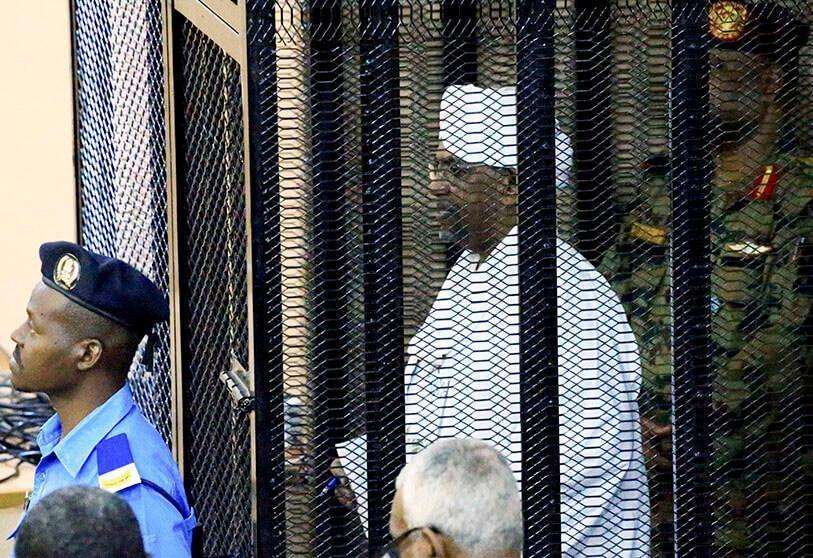
In Darfur, one of the major hotspots of the conflict in Sudan, clashes between the Arab and black populations are taking place due to internal struggles for possession of the area's resources, desertification that has led to the displacement of tribes to areas where livestock can graze, and political interests.
The economic, political and cultural marginalisation of Darfur, as a consequence of the Arabisation and centralisation policies of Omar al-Bashir's central government, led to the emergence of regional political insurgencies that challenged the impositions of the ruling elite. This situation led the government to favour Arab groups in the region, which led to clashes taking on ethnic dimensions. Unlike the Second Sudanese Civil War, the clashes were not between Muslims and non-Muslims but became a racial conflict between Arabs and blacks.
Faced with the imposition of Sharia law in Sudan by the ousted dictator, as well as economic, political and cultural marginalisation, the black population in the area reacted and accused the government of oppressive and arbitrary measures. These uprisings were suppressed with extreme brutality and Al-Bashir hired the Arab Janjaweed militias to carry out ethnic cleansing against the black population of the Fur, Masalit and Zaghawa groups. This ethnic cleansing resulted in some 300,000 dead and more than 2.5 million displaced, according to UN figures.
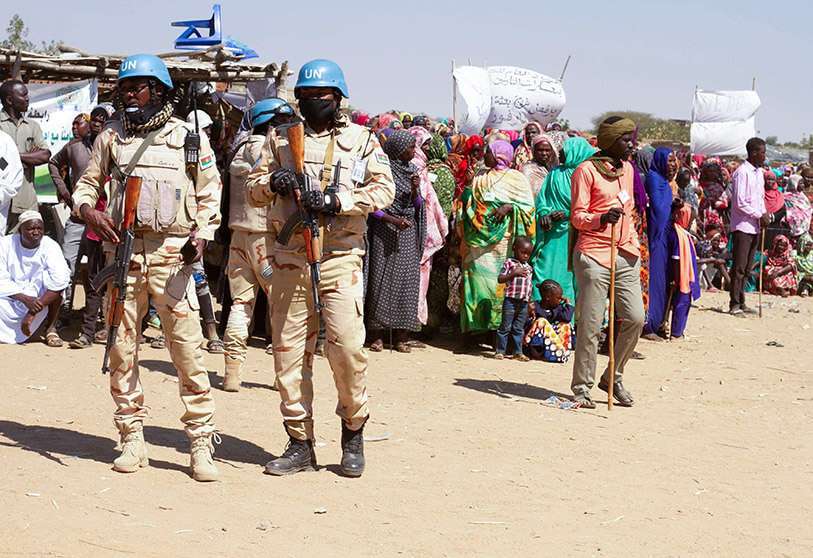
The conflict came to an end in 2006 with the signing of a peace agreement between the government and the Sudan Liberation Front, but fighting between the different ethnic groups continues.
The US government under George W. Bush described the scenario as "genocide" against the black inhabitants of these tribes, along with the international media. However, the UN did not describe it as such. In 2005, the UN General Council reported the situation in Sudan to the International Criminal Court to investigate alleged crimes against humanity, war crimes and genocide in Darfur. Following its resolution, in 2007, the UN established the African Union-United Nations Hybrid Operation in Darfur (UNAMID), which had as its main objective to "protect civilians, as well as contribute to security in relation to humanitarian assistance, monitor and verify the implementation of agreements and assist in achieving an inclusive political process". After ten years, in 2020, the UN mission officially ended its functions, leaving the Government of Sudan with the responsibility to protect civilians in the area, a task that has not been fulfilled as inter-tribal violence has continued to flare up.
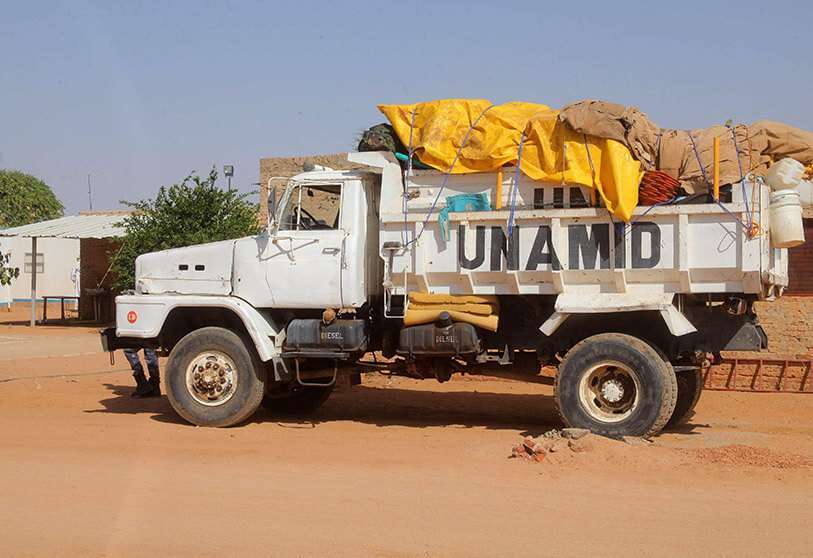
However, the fact that Sudan is not a party to the Rome Statute makes it difficult to prosecute al-Bashir and his associates, as the ICC does not have legislative power over crimes committed in a territory that is not a party to the Statute. Even so, the Security Council can refer situations where it considers that serious crimes against humanity are being committed to the UN. In this regard, the Sudanese president has had a warrant out for his arrest since 2009 after being accused of committing crimes of genocide, war crimes and crimes against humanity. Even so, the ICC cannot start the trial if the accused is not present, which is why the trial had been frozen for ten years.
In South Africa, Al-Bashir attempted to be arrested while attending the 2015 African Summit, but managed to escape and return to Sudan before the judge could issue a verdict.
In addition, Al-Bashir has been accused of supporting various terrorist groups and of hosting Osama bin Laden in Sudan. In this regard, bin Laden was one of the main supporters in the country of the Islamist Turabi, who became al-Bashir's main ally in building his new government.
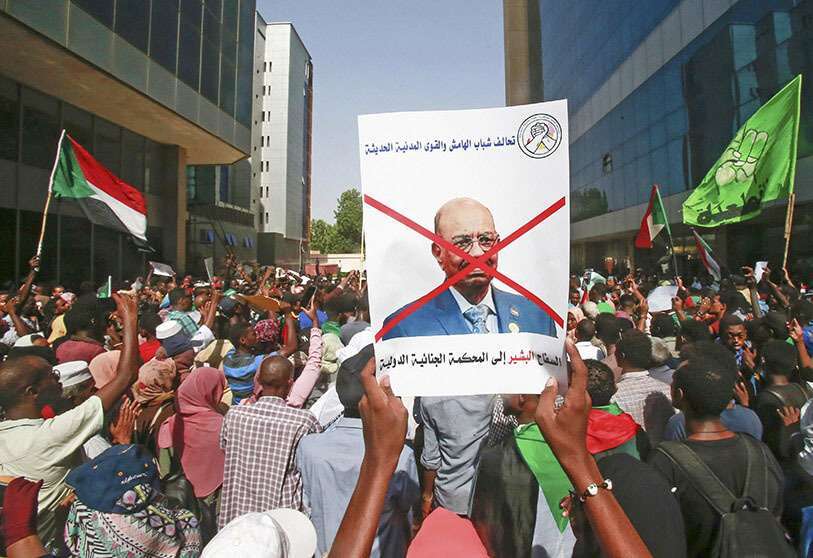
In addition, during his mandate, the Second Sudanese Civil War coincided with the claim for independence in Southern Sudan, and factors such as religion and ethnicity played an important role in underlining the differences between the North and the South. This conflict left one million people dead and culminated in the signing of a peace agreement in 2005 between the government and the Sudan People's Liberation Front.
Faced with these events, in 2018 the United States stopped funding the country and Sudan suffered an exponential rise in food prices. At the same time, the dictator decreed the end of wheat and fuel subsidies and, in the face of public unrest, decided to decree a state of alarm, an exceptional situation that prohibits demonstrations without formal state authorisation. Even so, in 2019, protests in the country and violence followed one after the other. What began with a series of demonstrations over rising prices ended in mass protests against the Al-Bashir government. In January, the protests spilled over into the political arena and 22 political organisations signed a manifesto calling for the overthrow of Al-Bashir and the creation of a transitional government.
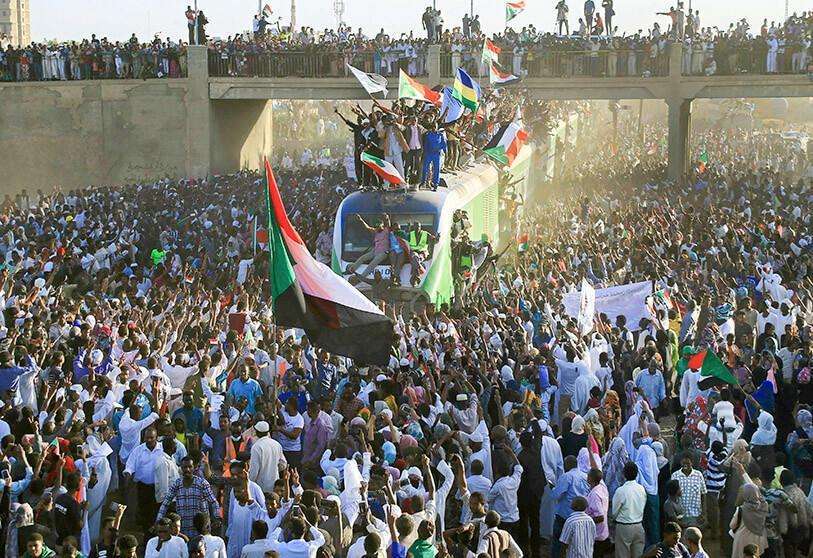
In April this year the army decided to take control of the country and the Sudanese Armed Forces forced the president to resign after he was held at his home, leading to the creation of an interim military council tasked with running the country for the next two years. The interim council was composed of the first vice president, Lieutenant General Ahmed Awad Ibn Auf, who headed the political decision-making.
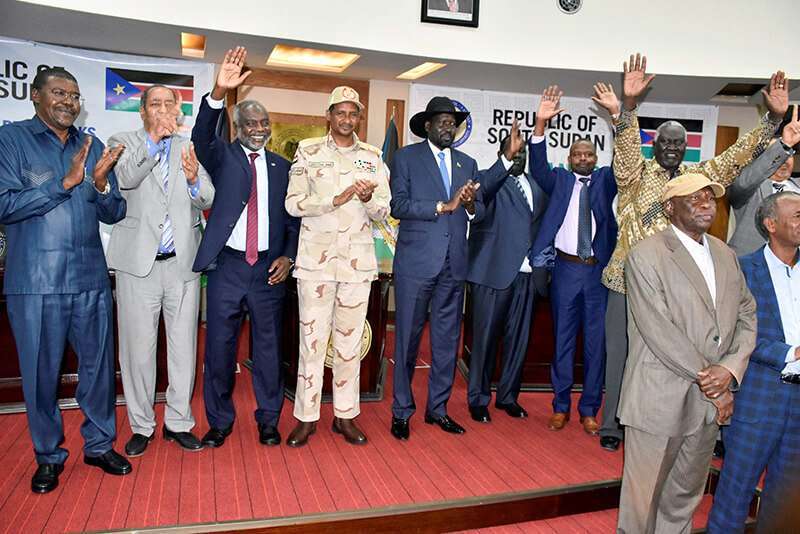
Subsequently, the country's Public Prosecutor's Office opened a file to try to investigate crimes committed during Al-Bashir's dictatorship. The attorney general, Tagelsir al-Hibr, announced at a press conference in December that an investigation into the dictator's collaborators had begun. He said that investigations had "begun into the crimes that have been perpetrated in Darfur since 2003 and the accusations against commanders of the former regime, whose sentences have gone as high as the death penalty".
He added that another case was being opened against the former head of the Al-Bashir regime's security services, Salah Gosh: "There are four cases against Salah Gosh and we have initiated a procedure to bring him back (to Sudan) through Interpol," he said. He concluded by saying that "all the representatives of the former (Al-Bashir) regime detained in Kobar prison are accused of crimes and prosecuted in different cases, without the court being able to release them on bail".
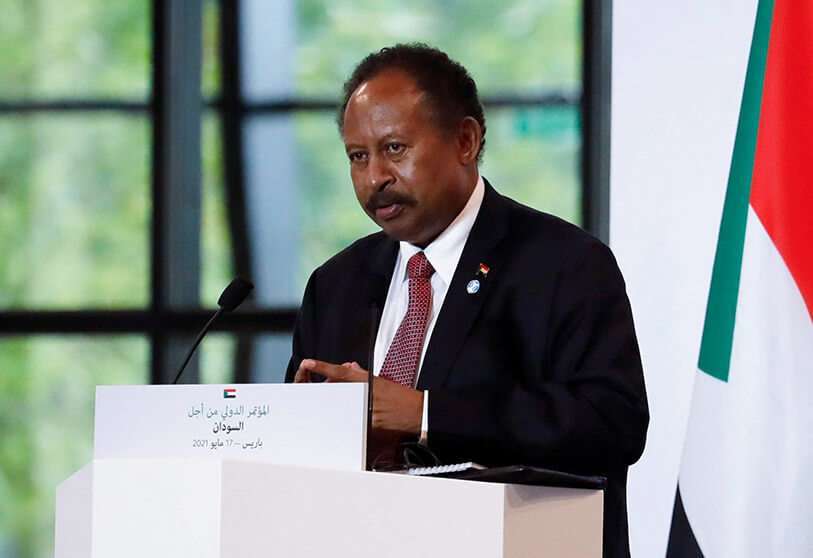
The latest announcement by Sudan officially confirms its commitment to bring Al-Bashir and those names on the Darfur dossier to international justice. This resolution was officially made during a meeting with Sudanese Foreign Minister Maryam al-Sadiq in her office with ICC Prosecutor Karim Kahn, as reported by the Sudan News Agency SUNA.
In this way, Foreign Affairs indicated that the Council of Ministers decided to extradite those wanted by the International Court, and approved the draft law on Sudan's accession to the Rome Statute of the International Criminal Court, a decision that provides for the future bringing to justice of the former dictator and his collaborators who finally, after more than 20 years of impunity and suffering on the part of the civilian population, will be brought to account before the international justice system.










